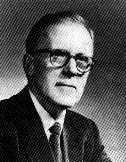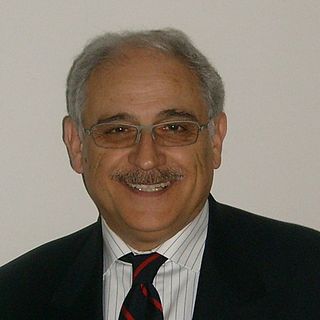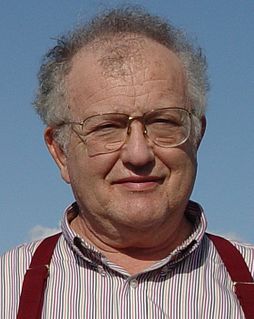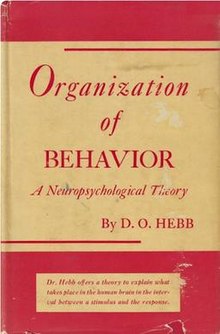
Stevan Robert Harnad is a Hungarian-born cognitive scientist based in Montréal, Canada.
Organization development (OD) is the study of successful organizational change and performance. OD emerged from human relations studies in the 1930s, during which psychologists realized that organizational structures and processes influence worker behavior and motivation. More recently, work on OD has expanded to focus on aligning organizations with their rapidly changing and complex environments through organizational learning, knowledge management and transformation of organizational norms and values. Key concepts of OD theory include: organizational climate, organizational culture and organizational strategies.

The Language Instinct is a 1994 book by Steven Pinker, written for a general audience. Pinker argues that humans are born with an innate capacity for language. He deals sympathetically with Noam Chomsky's claim that all human language shows evidence of a universal grammar, but dissents from Chomsky's skepticism that evolutionary theory can explain the human language instinct.

Donald Olding Hebb FRS was a Canadian psychologist who was influential in the area of neuropsychology, where he sought to understand how the function of neurons contributed to psychological processes such as learning. He is best known for his theory of Hebbian learning, which he introduced in his classic 1949 work The Organization of Behavior. He has been described as the father of neuropsychology and neural networks. A Review of General Psychology survey, published in 2002, ranked Hebb as the 19th most cited psychologist of the 20th century. His views on learning described behavior and thought in terms of brain function, explaining cognitive processes in terms of connections between neuron assemblies.
Hebbian theory is a neuroscientific theory claiming that an increase in synaptic efficacy arises from a presynaptic cell's repeated and persistent stimulation of a postsynaptic cell. It is an attempt to explain synaptic plasticity, the adaptation of brain neurons during the learning process. It was introduced by Donald Hebb in his 1949 book The Organization of Behavior. The theory is also called Hebb's rule, Hebb's postulate, and cell assembly theory. Hebb states it as follows:
Let us assume that the persistence or repetition of a reverberatory activity tends to induce lasting cellular changes that add to its stability. ... When an axon of cell A is near enough to excite a cell B and repeatedly or persistently takes part in firing it, some growth process or metabolic change takes place in one or both cells such that A's efficiency, as one of the cells firing B, is increased.
Organizational behavior (OB) or organisational behaviour is the: "study of human behavior in organizational settings, the interface between human behavior and the organization, and the organization itself". OB research can be categorized in at least three ways:

Robert Von "Bobby" Hebb was an American R&B and soul singer, musician, songwriter, recording artist, and performer known for his 1966 hit entitled "Sunny".
Behavioural sciences explore the cognitive processes within organisms and the behavioral interactions between organisms in the natural world. It involves the systematic analysis and investigation of human and animal behavior through naturalistic observation, controlled scientific experimentation and mathematical modeling. It attempts to accomplish legitimate, objective conclusions through rigorous formulations and observation. Examples of behavioral sciences include psychology, psychobiology, anthropology, and cognitive science. Generally, behavior science deals primarily with human action and often seeks to generalize about human behavior as it relates to society.
Perceptual control theory (PCT) is a model of behavior based on the principles of negative feedback, but differing in important respects from engineering control theory. Results of PCT experiments have demonstrated that an organism controls neither its own behavior, nor external environmental variables, but rather its own perceptions of those variables. Behavior, in PCT, is the means by which an organism controls its perceptions, not its actions. As a catch-phrase of the field puts it, "behavior is the control of perception." PCT demonstrates circular causation in a negative feedback loop closed through the environment. This fundamentally contradicts the classical notion of linear causation of behavior by stimuli, in which environmental stimuli are thought to cause behavioral responses, mediated by intervening cognitive processes.
A neuronal ensemble is a population of nervous system cells involved in a particular neural computation.
The following outline is provided as an overview of and topical guide to psychology:
Neural cliques are network-level memory coding units in the hippocampus. They are functionally organized in a categorical and hierarchical manner. Researchers investigating the role of neural cliques have gained insight into the process of storing memories in the brain. Research evidence suggests that memory of events is achieved not through memorization of exact event details but through recreation of select images based on cognitive significance. This process enables the brain to exhibit large storage capacity and facilitates the capacity for abstract reasoning and generalization. Although several studies converges in the demonstration that real-time patterns of memory traces and sensory inputs are retained in the form of neural cliques, the topic is currently in active research in order to fully understand this biological code.

A man is an adult male human. Prior to adulthood, a male human is referred to as a boy.

John Pourdehnad is an American organizational theorist, and consultant. He is associate director of the Ackoff Center for Advancement of Systems Approaches (ACASA), and Affiliated Faculty in the Organizational Dynamics Graduate Program at the University of Pennsylvania.

Albert Stanley "Al" Bregman is a Canadian professor and researcher in experimental psychology, cognitive science, and Gestalt psychology, primarily in the perceptual organization of sound.

Mark Richard Rosenzweig was an American research psychologist whose research on neuroplasticity in animals indicated that the adult brain remains capable of anatomical remodelling and reorganization based on life experiences, overturning the conventional wisdom that the brain reached full maturity in childhood.

Why Freud Was Wrong: Sin, Science and Psychoanalysis is a book by Richard Webster, in which the author provides a critique of Sigmund Freud and psychoanalysis, and attempts to develop his own theory of human nature. Webster argues that Freud became a kind of Messiah and that psychoanalysis is a pseudoscience and a disguised continuation of the Judaeo-Christian tradition. Webster endorses Gilbert Ryle's arguments against mentalist philosophies in The Concept of Mind (1949), and criticizes many other authors for their treatment of Freud and psychoanalysis.
Mortimer Mishkin is an American neuropsychologist, and winner of the 2009 National Medal of Science awarded in Behavior and Social Science.
The CPA Donald O. Hebb Award for Distinguished Contributions to Psychology as a Science is an annual award presented by the Canadian Psychological Association (CPA).









